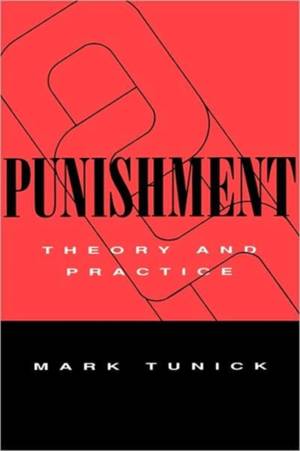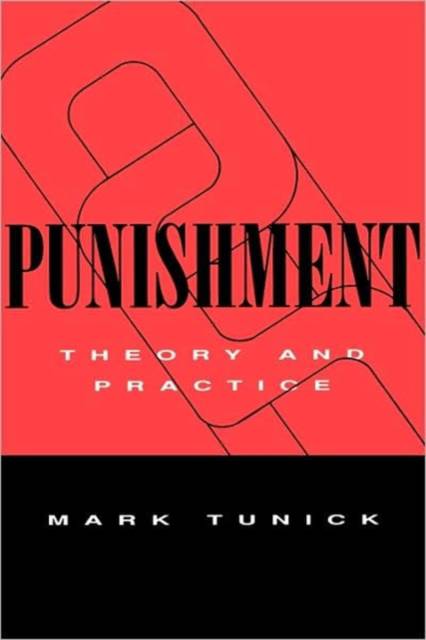
- Afhalen na 1 uur in een winkel met voorraad
- Gratis thuislevering in België vanaf € 30
- Ruim aanbod met 7 miljoen producten
- Afhalen na 1 uur in een winkel met voorraad
- Gratis thuislevering in België vanaf € 30
- Ruim aanbod met 7 miljoen producten
Zoeken
Omschrijving
What actions should be punished? Should plea-bargaining be allowed? How should sentencing be determined? In this original, penetrating study, Mark Tunick explores not only why society punishes wrongdoing, but also how it implements punishment.
Contending that the theory and practice of punishment are inherently linked, Tunick draws on a broad range of thinkers, from the radical criticisms of Nietzsche, Foucault, and some Marxist theorists through the sociological theories of Durkheim and Girard to various philosophical traditions and the "law and economics" movement. He defends punishment against its radical critics and offers a version of retribution, distinct from revenge, that holds that we punish not to deter or reform, but to mete out just deserts, vindicate right, and express society's righteous anger. Demonstrating first how this theory best accounts for how punishment is carried out, he then provides "immanent criticism" of certain features of our practice that don't accord with the retributive principle.
Thought-provoking and deftly argued, Punishment will garner attention and spark debate among political theorists, philosophers, legal scholars, sociologists, and criminologists.
Contending that the theory and practice of punishment are inherently linked, Tunick draws on a broad range of thinkers, from the radical criticisms of Nietzsche, Foucault, and some Marxist theorists through the sociological theories of Durkheim and Girard to various philosophical traditions and the "law and economics" movement. He defends punishment against its radical critics and offers a version of retribution, distinct from revenge, that holds that we punish not to deter or reform, but to mete out just deserts, vindicate right, and express society's righteous anger. Demonstrating first how this theory best accounts for how punishment is carried out, he then provides "immanent criticism" of certain features of our practice that don't accord with the retributive principle.
Thought-provoking and deftly argued, Punishment will garner attention and spark debate among political theorists, philosophers, legal scholars, sociologists, and criminologists.
Specificaties
Betrokkenen
- Auteur(s):
- Uitgeverij:
Inhoud
- Aantal bladzijden:
- 224
- Taal:
- Engels
Eigenschappen
- Productcode (EAN):
- 9780520077379
- Verschijningsdatum:
- 25/08/1992
- Uitvoering:
- Hardcover
- Formaat:
- Genaaid
- Afmetingen:
- 155 mm x 234 mm
- Gewicht:
- 485 g

Alleen bij Standaard Boekhandel
+ 213 punten op je klantenkaart van Standaard Boekhandel
Beoordelingen
We publiceren alleen reviews die voldoen aan de voorwaarden voor reviews. Bekijk onze voorwaarden voor reviews.








